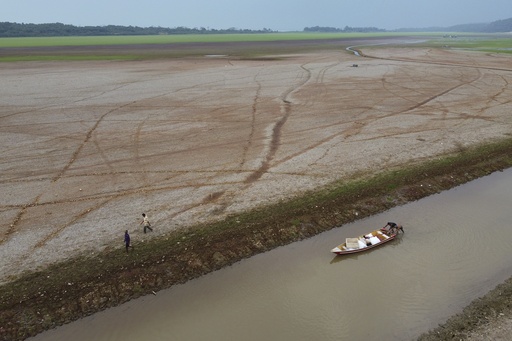BOGOTA, Colombia — An important United Nations meeting on biodiversity, previously paused, is set to continue its discussions in Rome, with a strong focus on financial aspects. There is a significant emphasis on managing the funds pledged to conserve Earth’s plant and animal life and identifying avenues to generate additional financial resources.
At the biodiversity discussions known as COP16 in Colombia, some key agreements were reached before the conference adjourned in November. Among these was a groundbreaking deal requiring corporations benefitting from natural genetic resources—like pharmaceuticals derived from rainforest plants—to equitably share their gains. Moreover, measures were adopted to involve Indigenous groups and local communities more deeply in conservation efforts.
However, there was simply not enough time to finalize all discussions last year. The Cali meeting, which followed the pivotal 2022 COP15 agreement in Montreal, aimed at setting 23 objectives to safeguard biodiversity, proposed protecting 30% of Earth and 30% of degraded ecosystems by 2030, outlined in the Global Biodiversity Framework.
“Montreal established what our collective goals are,” explained Georgina Chandler from the Zoological Society London, “but Cali was meant to figure out the ‘how’—putting in place the strategies and finances to execute this framework.”
Linda Krueger from The Nature Conservancy, attending the Rome subsection of talks, noted: “Due to participants leaving, a quorum was lost, interrupting crucial decisions on financing and resource mobilization under the Global Biodiversity Framework, as well as planning, monitoring, and reporting requirements.”
Originally, the financial target aimed to secure $20 billion annually by 2025 and rise to $30 billion by 2030. By November, commitments amounted to just $383 million across 12 contributing nations like Austria, Canada, and the United Kingdom.
Discussions will focus on developing a global financial mechanism for biodiversity to ensure effective fund allocation. Raising further funds will also be a central discussion point.
The ambitious financial goals set previously are far from realization, Key financial streams for biodiversity are diminishing, observed Oscar Soria from The Common Initiative. He cautioned that what began as a hopeful narrative of resource allocation could turn into a missed opportunity without mutual agreements.
Despite these challenges, Susana Muhamad, Colombia’s former environment minister and COP16 president, remains optimistic about the outcomes from the Rome talks. She stressed the importance of collaboration amidst global conflicts to protect biodiversity in the face of climate change.
A recent report from the World Wildlife Fund and the Zoological Society of London highlighted a 73% average decline in global wildlife populations over the last half-century, underscoring the urgency of preserving biodiversity. Chandler emphasized its integral role in human survival, influencing air quality, water resources, climate regulation, and food security.
Wide-ranging deforestation impacts are felt not only within the Amazon but also stretch across South America, the Congo Basin, and other biodiverse areas worldwide. Such environmental disruptions affect rain patterns, soil health, and overall ecosystems, emphasizing the global nature of the issue.


